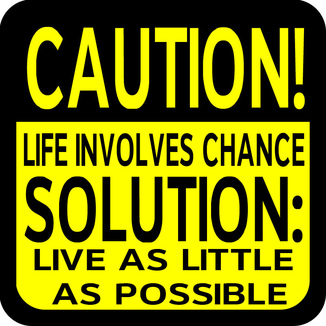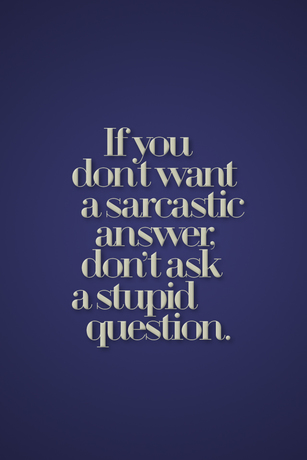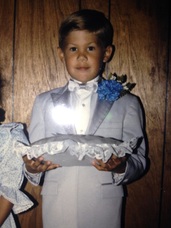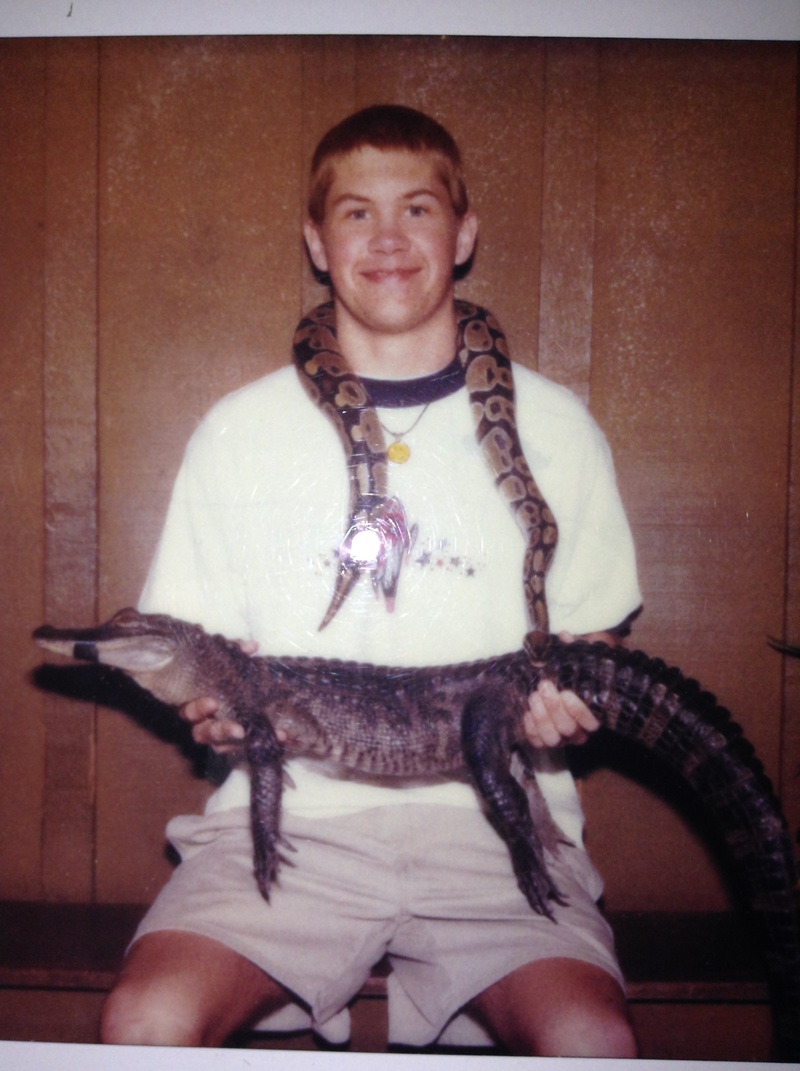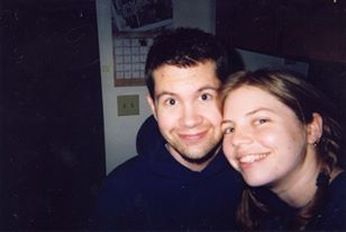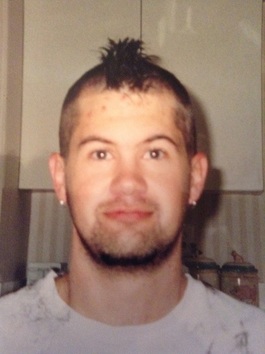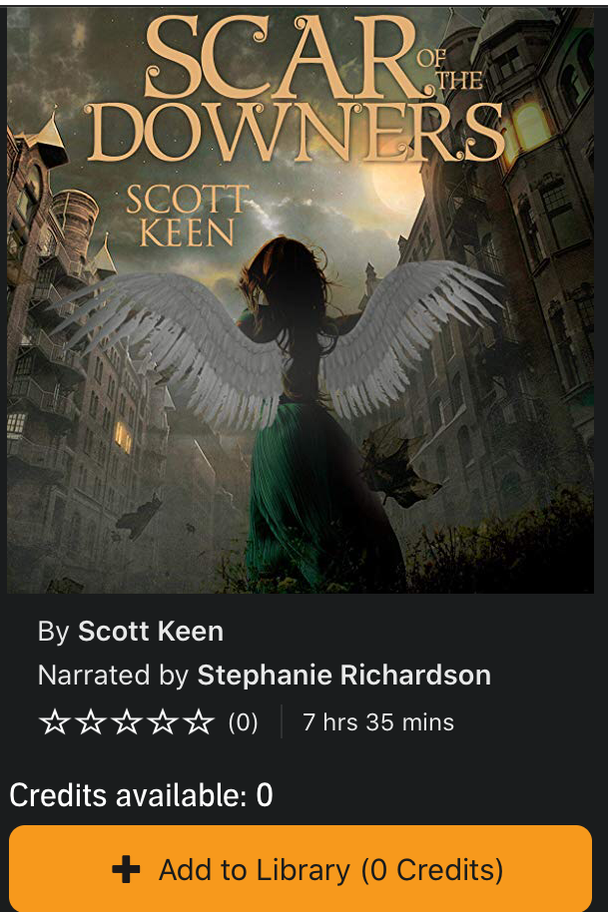|
The following is a repost. Enjoy! I’m writing this post as a reader and a writer, but more as a reader. So this will not be a how-to. Consider this more of a rant… a rant from a reader/writer. It will not be a post on how you should write. So, as a reader, let me begin my rant… I’m tired of books trying to “hook me” in the first few paragraphs. As a writer, I hear this all the time from agent blogs and websites. "You must hook me in." First of all, I'm not a fish. I don't need to be "hooked in." I don't spend my time in bookstores reading the first page to see if I'm "hooked." In my opinion, this idea comes from agents who don't have enough time to read every book. So if the first paragraph doesn't "grab them," then they don't want it. As an adult, however, I don’t have an attention span of a gnat. If I am to trust you as an author, trust me as a reader. I’m fine if something huge doesn’t happen in the first few pages. In fact, I prefer it. I have a bit of patience while a reading a book. Maybe that’s from having four children, who knows! Either way, just tell me a story and I’ll stick with you through it. Don’t give me cheap action, thinking that I won’t be able to put it down. That, in itself, may make me want to put it down. If I am to trust you as an author, trust me as a reader. Now, I feel this is a more modern development, and there are those who may disagree with me (on both accounts). That’s fine. With the advent of movies, books have had to become “tighter.” (Again, I’m not saying I agree that this should be so or not. It’s just my own thought). It was another form of entertainment with which books had to compete. Now, I think books are becoming more like television series. The first few pages have to have a teaser of sorts so the reader won’t “change the channel" or put down the book. I don’t know about you, but I don’t want a story to dive right into the action. I want to build to it. I don’t want to buy a $15.00 book (or more) to read only 100 pages. Give me a novel. I want to get lost in the story, and that’s hard to do in some of the more recent books.
Now, regardless of what these websites say, I don’t read a book because of the first page. Nor do I put it down because it didn’t “draw me in.” If the story is a story I want to read, I will read it regardless. After all, I am an adult (not to mention that I have an OCD tendency to finish things.) Well, that's my rant and I'm sticking to it.
1 Comment
I’ve written about this topic before, and I’ll probably write about it again. It deals with something we all have to face in life: criticism. As a writer, you can’t get away from it; it’s just something you’re going to have to endure. it is imperative that you put your work out there. How else will it be read, published, or produced? I do not need to remind you, though I will anyway, that there is a danger, however, in doing that. Your ego may be bruised; your self-confidence smashed; your frail hope deferred. That is just the nature of the job. With every task there is an inherent risk. It may not be physical, but it is present nonetheless. I will relay the thing I’ve learned over the years that may save other writers some unneeded heartache. Now this may seem strange, and some people may think it is controversial. I may have even stated this before. If I have, I am going to reinforce it. When you want someone to critique your work, if at all possible, make sure the person who is giving you the feedback is NOT a writer. Let’s say you’ve just finished a manuscript and you want someone to read it so that he/she can give you some valued feedback. Where would you take it to get such feedback? I know some people might say to take it to a writer’s group. That may be wise in some people’s eyes, but I would advise against such a move, and I’ll tell you why. When you want someone to critique your work, if at all possible, make sure the person who is giving you the feedback is NOT a writer. I’ve received a lot of critiques and feedback in my writing “journey.” A lot of it has been helpful and good and a lot of it has been, for a lack of a better word, stupid. The reason why I would advise you against getting your work critiqued by another writer is simple. While critiquing, a writer’s mind starts thinking of all the possibilities he/she could or would do with the story. And of course, the possibilities that he/she chooses are automatically better than what has been written. Why? Because he/she came up with them. Why does this happen? Well, when a writer reads a work, they tend to ask themselves this question: what would I do? At first glance, it may seem like a good question, but to be honest, it isn’t. Why is this a bad question to ask yourself if critiquing a work? I’ll tell you why. It places you as the author when you clearly are not. It implies that you “know better.” In the end, it is a narcissistic way to look at someone’s work. The question that should be asked is quite different: What are you, the author, trying to accomplish? Some people might think there is very little difference between the two questions. The difference, however, is profound. The former question places the critiquing author as the focus of the work while the latter question puts the author’s vision as the focus. To be honest, and blunt, I don’t really care what another author “would do” with my story. I only care whether I can accomplish what I set out to do with it. Have I ever asked other writers to critique my work? Yes. Will I ever do it again? Probably. Sometimes you can’t avoid it. I will, however, be very wary about who I ask, and you should be too. I would never just ask anyone to watch my children. I would have to trust them implicitly The same goes for critiquing my work. I would never ask just any writer to do that. There should be trust there. And like I said before, writers are like cats. (Check out an earlier blog on this topic right here.) Before they trust the other person, they must first sniff him or her out. To be honest, and blunt, I don’t really care what another author “would do” with my story. I only care whether I can accomplish what I set out to do with it. So who would I ask to critique my work? A reader - a reader with no interest in writing. That is who I can trust more than another writer. A reader tends to have no agenda; no ego in writing; nothing to prove. A reader tends to trust the writer and read the story as it is given. SIDENOTE: I think criticism should be class in a writing program. It should teach people how to take and give it. But that’s another point for another day. Now, some of you may wonder if I’ve ever given feedback. Yes, I have given criticism. To be honest, i’s hard to remember this type of thing. But criticism of a person’s work shouldn’t ever be easy; it shouldn’t ever be taken lightly or done quickly. People have poured their heart into their work. How can I be so callous as to flippantly tear someone else’s heart apart?
This year I will be “celebrating” my 39th birthday. In truth, I won’t be celebrating it - it’s just going to happen. There probably won’t be much of a celebration either. What will probably happen is that my wife will make me a cake and I’ll choose what kind of meal I want to eat. Regardless, as I’m nearing the end of my thirties, I’ve been looking back on my life a bit more. While my worldview hasn’t changed much, my outlook on life has gone through several transformations. I think you could divide each of these transformations according to the decade of my life. (Birth-10 Years of Age) - Carefree Years
You looked forward to vacations, visiting cousins, weekends, etc… Generally, all the good things in life. During these years, you didn’t spend time thinking about how things were - they just were. The world was the way the world was. It snowed in the winter, rained in the spring, shined in the summer, and fell in the fall. (11-19 Years of Age) - Idealistic Years
(20-29 Years of Age) - Hopeful Years
That, however, didn’t matter. I was hopeful. I had the belief that talent and education would get you what you needed.
(30-39 Years of Age) - Cynical Years 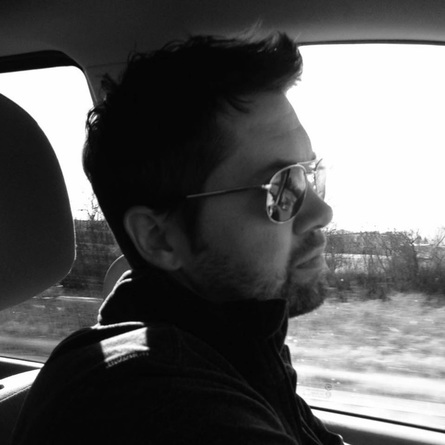 Me being cynical. Me being cynical. Well, as my twenties slipped by, and I woke up into my thirties, I finally understood something about myself and the world. The first thirty years of my life were filled with many lies, half-truths, and misunderstandings. The realization of how life really was left me jaded and cynical. Trust? Who was I to trust? Everyone was out for themselves. Despite John Donne’s assertion that “no man is an island,” and how badly I wanted to believe that, I had come to the belief that, for the most part, you are an island (at least in the practical things of life). You are “alone.” That is just the way it is. You have your spouse (hopefully) and maybe your extended family - sometimes you don’t. Perhaps you have a few friends. But let’s face it, they have their own family. So, what other person can you rely on? Now, I know some of you reading this may think it sounds depressing. Well, I will remind you that these are my cynical years, so I can understand that sentiment. It is during these years, you finally realize that life isn’t the way you had hoped or thought it would be. Some people discover this earlier, some people later. Some people may never go through cynicism because their life may have turned out exactly the way they wanted it to. I don’t know. That is up to them to express. (40+) Perhaps as I enter my forties this will change. A new outlook on life will take over, and the cynical years will be a blip. Perhaps, not. Who’s to say?
Right now, my main focus is acceptance and contentment. As a Christian, I must be content with wherever I am. And if you’re not a Christian, contentment is still a good thing to strive for. I must also accept where I am and not let my cynical years turn into bitter years. How can one do this? Be thankful. Be thankful for what you have and don’t concentrate on what you don’t have. Therein, however, lies the true struggle. Hopefully, as I close out on one decade and embark on another, it will become known to me as the Grateful Years. |
AudiobookArchives
February 2021
Categories
All
|
